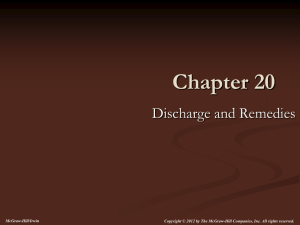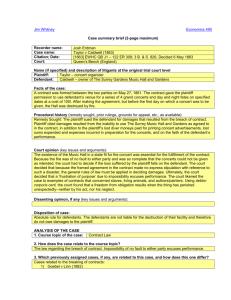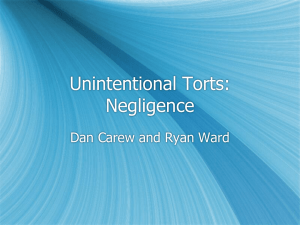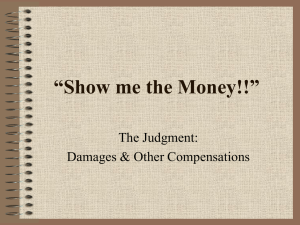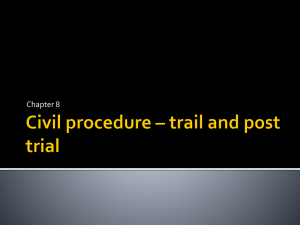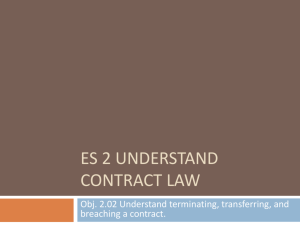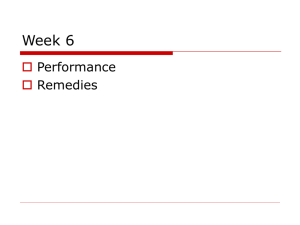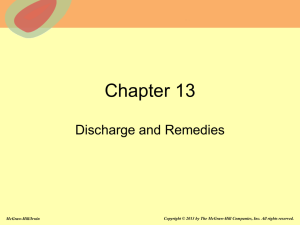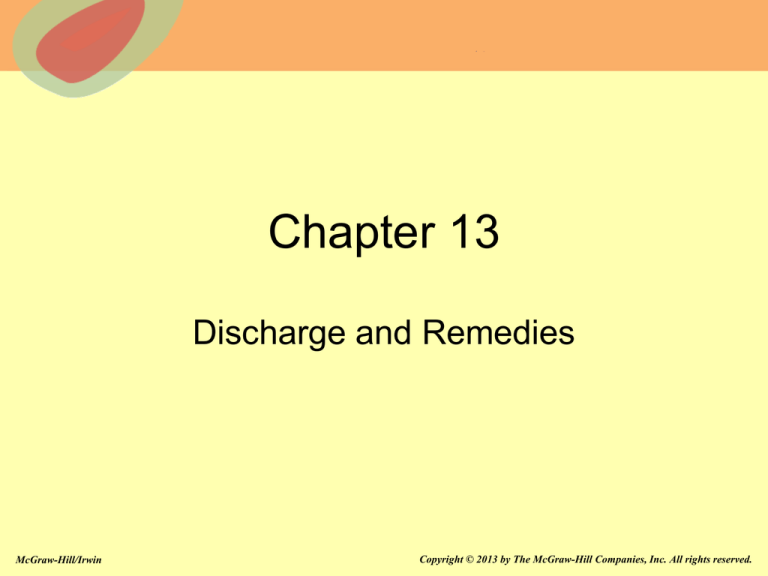
Chapter 13
Discharge and Remedies
McGraw-Hill/Irwin
Copyright © 2013 by The McGraw-Hill Companies, Inc. All rights reserved.
Circumstances Resulting in
Discharge of Contract
• Performance
• Happening of condition or its failure to occur
• Material breach by one/both parties
• Mutual Agreement
• Operation of law
13-2
Types of Conditions
• Condition Precedent: Particular event that must
occur for a party’s duty to arise
• Condition Subsequent: Future event that
terminates obligations of parties when it occurs
• Concurrent Conditions: Each party’s performance
conditioned on simultaneous performance of the
other
13-3
Types of Conditions (Continued)
• Express Condition: Condition explicitly state in
contract (usually preceded by words such as
“conditioned on”, “if”, “provided that”, or “when”)
• Implied Condition: Condition not explicitly stated,
but inferred from nature and language of contract
13-4
Tender
Definition: An offer of performance; making
an offer to perform and being ready, willing
and able to perform
13-5
Types of Performance
• Complete Performance: Occurs when all aspects of
parties’ duties under contract are carried out perfectly
• Substantial Performance: Occurs when:
-Completion of “nearly all” terms of agreement;
-Honest effort to complete all terms; and
-No “willful departure” from terms of agreement
13-6
Discharge By Material Breach
• Occurs when party unjustifiably fails to
substantially perform his/her contractual
obligations
• Discharges non-breaching party from his/her
contractual obligations
13-7
Anticipatory Repudiation
• Definition: Party decides, before the actual
time of performance, not to complete contract
obligations
• Often occurs when market conditions change
and one party realizes it will not be profitable
to fulfill terms of contract
13-8
Anticipatory Repudiation
(Continued)
• Can occur either through express indication of intent
not to perform, or action inconsistent with ability to
carry out contract obligations when performance due
• Once contract anticipatorily repudiated, nonbreaching party discharged from obligations under
contract, and can sue immediately for breach
13-9
Discharge By Mutual Agreement
• Mutual Rescission: Both parties agree to discharge each
other from their mutual obligations
• Substituted Contract: Parties agree to substitute new contract
in place of original contract
• Accord and Satisfaction: Used when one party wishes to
substitute a different performance for his/her original
contractual duty
-“Accord”: Promise to perform new duty
-“Satisfaction”: Actual performance of new duty
-Party’s duty under contract not discharged until new duty
performed
13-10
Discharge By Mutual Agreement
(Continued)
• Novation: Parties to contract wish to replace one of
the parties with a third party
• “Novation” is the substitution of a party
• Original duties remain same under contract, but
one party discharged, and third party takes original
party’s place
• All three parties must agree to the novation for it to
be valid
13-11
Discharge By Operation of Law
• Alteration of Contract
• Bankruptcy
• Tolling of statute of limitations
• Impossibility of performance
• Commercial Impracticability
• Frustration of Purpose
13-12
Legal Remedies (Monetary Damages) For Breach
of Contract
• Compensatory Damages: Damages designed to put plaintiff in
position he would have been in had contract been fully performed
• Consequential (Special) Damages: Foreseeable damages that
result from special facts and circumstances arising outside contract
itself. These damages must be within contemplation of parties at
time breach occurs
• Punitive Damages: Damages designed to punish defendant and
deter him and others from engaging in similar behavior in the future
-Primary factor in determining amount of punitive damages is
amount necessary to “punish” defendant
-Amount of punitive damages depends on factors such as wealth
and income of defendant
13-13
Legal Remedies (Monetary Damages) For
Breach of Contract
• Nominal Damages: Award (typically for only $1 or $5)
intended to signify that although no actual damages
resulted from defendant’s breach of contract, plaintiff
wronged by defendant
• Liquidated Damages: Damages for breach of contract
specified in the contract itself (either as fixed amount,
or as formula for determining money due)
13-14
Duty to Mitigate Damages
Definition: Obligation on non-breaching party
(plaintiff) to use reasonable efforts to minimize
damage resulting from defendant’s breach of
contract
13-15
Equitable Remedies For Breach of
Contract
• Rescission: Termination of contract
• Restitution: Return of any property transferred under
contract
• Specific Performance (Specific Enforcement): Order
requiring breaching party to fulfill obligations under
contract. Usually awarded only when monetary
damages inadequate, and subject matter of contract
unique (Example: Contract for sale of real estate)
13-16
Equitable Remedies For Breach of
Contract (Continued)
• Injunction: Order forcing person to do something, or
prohibiting person from doing something (usually a
prohibition against certain actions)
• Reformation: Contract rewritten to reflect parties’
actual agreement
• Quasi-Contract: “Contract-like” obligation imposed on
party to prevent “unjust enrichment”
13-17
Elements Necessary to Recognize
Quasi-Contractual Recovery
• Plaintiff conferred benefit on defendant
• Plaintiff reasonably expected to be compensated
for benefit conferred on defendant
• Defendant would be “unjustly enriched” from
receiving benefit without compensating plaintiff
13-18


